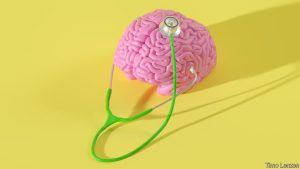The Deceptive Mind: Unraveling Your Brain’s ‘Everything Is Worse’ Illusion
Dr. Alexandra Richards, a distinguished psychologist with over two decades of expertise in human perception and cognition, leads us on an illuminating expedition through the labyrinth of the human mind. Her groundbreaking research illuminates the perplexing illusions crafted by our brains.
1. The Illusion of ‘Everything Is Worse’
Understanding the Pessimism Bias
Dr. Richards uncovers the pervasive pessimism bias, revealing how our brains tend to amplify negative events over positive ones. Exploring the evolutionary underpinnings, she illustrates why negativity often appears more salient in our thoughts.
Why Negativity Sticks
Delving into the psychological phenomena behind why negative experiences and emotions tend to linger longer in our minds, she elucidates the mechanisms that anchor these events, influencing our overall perceptions.
The Brain’s Role in Amplifying Negative Events
The neurological processes behind the amplification of negative events are revealed. From amygdala responses to the formation of memory, Dr. Richards illustrates how our brain prioritizes negative information.
2. Tricks of the Mind
Anchoring and Adjustment: How It Shapes Perception
Understanding how initial information (anchors) biases our subsequent judgments. Dr. Richards illuminates the impact of these anchors and how they shape our views on various topics.
Confirmation Bias: Reinforcing Our Beliefs
Examining the phenomenon where individuals seek and interpret information that confirms their existing beliefs. Practical examples illustrate how this bias impacts our decision-making.
Availability Heuristic: Influence on Decision-Making
Exploring how the availability heuristic impacts our judgments by relying on immediate examples that come to mind. Dr. Richards demonstrates its effect on everyday decisions.
3. Rewiring for a Healthier Mindset
Practical Strategies to Combat Negativity
Dr. Richards presents practical exercises and mental habits to counteract the brain’s inclination toward negativity. Techniques for reframing thoughts and challenging biased perceptions are detailed.
Mindfulness and Its Impact on Perception
Delving into the power of mindfulness, Dr. Richards discusses its role in heightening awareness and reducing stress, ultimately reshaping our perceptions for a more positive outlook.
Cognitive Restructuring for a Positive Outlook
Examining cognitive restructuring techniques that challenge negative thoughts and encourage a more optimistic perspective. She offers step-by-step methods for implementing these strategies.
4. The Psychology of Perception
Impact of Social and Cultural Influences
Exploring how societal norms and cultural values shape our perceptions, influencing our outlook on life and the world around us.
Emotional Contagion: Understanding Others’ Perceptions
Dr. Richards uncovers the phenomenon of emotional contagion, elucidating how we can ‘catch’ others’ emotions and how this influences our own perceptions.
Psychological Resilience: Building Mental Toughness
The concept of psychological resilience is explored, offering strategies to cope with adversity and build mental toughness to combat the ‘everything is worse’ illusion.
Visual Table for Key Points
| Key Aspect | Insights Covered |
|---|---|
| Pessimism Bias | Brain’s Amplification of Negative Events |
| Tricks of the Mind | Anchoring, Confirmation Bias, Availability Heuristic |
| Strategies for a Healthier Mindset | Mindfulness, Cognitive Restructuring |
| Psychology of Perception | Social Influences, Emotional Contagion, Resilience |

Comparative Table: Perception Strategies
| Strategy | Key Features |
|---|---|
| Mindfulness | Increases Awareness, Reduces Stress |
| Cognitive Restructuring | Challenges Negative Thoughts, Encourages Positivity |
| Emotional Contagion | Understanding Others’ Emotions, Empathy Building |
| Psychological Resilience | Coping Mechanisms, Mental Toughness |
In unraveling “The Deceptive Mind: Unraveling Your Brain’s ‘Everything Is Worse’ Illusion,” Dr. Richards illuminates the complexities of perception biases. With a deeper understanding and practical strategies, readers can transcend the ‘everything is worse’ illusion, fostering a healthier and more balanced mindset.
This article aims to empower readers to navigate their perceptions more consciously, fostering a positive and resilient approach to life. With a blend of scientific insights and practical solutions, it equips readers with the tools needed to challenge deceptive cognitive biases and embrace a more optimistic perspective.
Remember, your mind might deceive you, but armed with knowledge, you can outsmart its tricks and cultivate a brighter, more fulfilling life.










